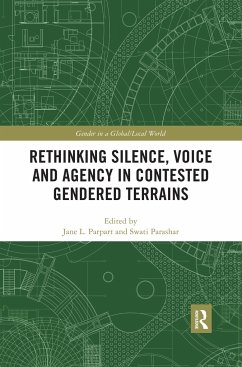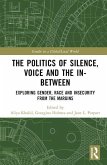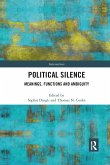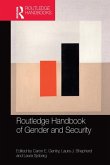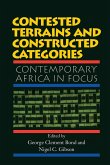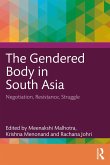Global and local contestations are not only gendered, they also raise important questions about agency and its practice and location in the twenty-first century. Silence and voice are being increasingly debated as sites of agency within feminist research on conflict and insecurity. Drawing on a wide range of feminist approaches, this volume examines the various ways that silence and voice have been contested in feminist research, and their impact on how agency is understood and performed, particularly in situations of conflict and insecurity.
The collection makes an important and timely contribution to interdisciplinary feminist theorizing of silence, voice and agency in global politics. Interrogating the intellectual landscape of existing debates about agency, silence and voice in an increasingly unequal and conflict-ridden world, the contributors to this volume challenge the dominant narratives of agency based on voice or speech alone as a necessary precondition for understanding or negotiating agency or empowerment. Many of the authors have engaged in field research in both the Global South and North and bring in-depth and diverse gendered case studies to their analysis, focusing on the increasing importance of examining silence as well as voice for understanding gender and agency in an increasingly embattled and complicated world.
This book will contribute to and deepen existing discussions of agency, silence and voice in development, culture and gender studies, political economy, postcolonial and de-colonial scholarship as well as in the field of International Relations.
The collection makes an important and timely contribution to interdisciplinary feminist theorizing of silence, voice and agency in global politics. Interrogating the intellectual landscape of existing debates about agency, silence and voice in an increasingly unequal and conflict-ridden world, the contributors to this volume challenge the dominant narratives of agency based on voice or speech alone as a necessary precondition for understanding or negotiating agency or empowerment. Many of the authors have engaged in field research in both the Global South and North and bring in-depth and diverse gendered case studies to their analysis, focusing on the increasing importance of examining silence as well as voice for understanding gender and agency in an increasingly embattled and complicated world.
This book will contribute to and deepen existing discussions of agency, silence and voice in development, culture and gender studies, political economy, postcolonial and de-colonial scholarship as well as in the field of International Relations.

